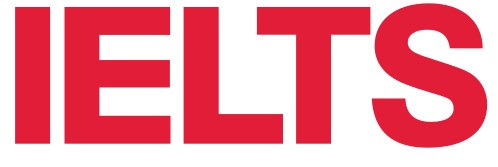- الأخبار والمقالات
- الفعاليات
- اعثر عليناIDP AustraliaIDP BahrainIDP BangladeshIDP CambodiaIDP CanadaIDP ChinaIDP EgyptIDP GhanaIDP Hong KongIDP IndiaIDP IndonesiaIDP IranIDP JordanIDP KenyaIDP KoreaIDP KuwaitIDP LebanonIDP MalaysiaIDP MauritiusIDP Middle EastIDP NepalIDP New ZealandIDP NigeriaIDP OmanIDP PakistanIDP PhilippinesIDP Saudi ArabiaIDP SingaporeIDP Sri LankaIDP Taiwan, ChinaIDP ThailandIDP TurkeyIDP VietnamIDP Corporate
- اجتماعي
- العربية
المواضيع التي تم مناقشتها
- Published: 6 October 2022
Common Phrases for Different Situations
As English speakers, we play with language to make it more interesting and descriptive. Here are some examples of everyday phrases and some more natural ways to say those same phrases.
How are you?
When learning English, many people learn the question, ‘How are you?’ and the response, ‘I’m fine, thank you. And you?’ This can sound robotic to native English speakers. Here are some more common phrases.
What’s new? What’s up? What have you been up to? What did you get up to (yesterday)? | - These are all ways to ask there is anything new happening in life; new job, new clothes, or a new experience like going to a museum. |
How are things? How’s it going? | - These questions mean the same as ‘How are you?’, just in a more natural way. |
I’m fine, thank you. And you?
This response is very generic, and the listener may not believe that’s how you really feel. Some more believable responses are:
Great! Excellent! Awesome! | - Here, you would say these responses when something has happened, and you want to share it. |
Pretty good. | - This means the same as good. |
Same as always. Can’t complain. | - These are neutral responses where things in your life are okay.
|
Could be better. Not so good. | - Here are negative responses that tell the listener that you are going to share negative information. |
Thank you.
The phrase, ‘Thank you’ is an acceptable response that people use often. Here are some other ways to say thank you.
Thanks. I appreciate it. I owe you one. | - You want to show that person that you want to do something for them because they did something for you. |
You’re Welcome
Again, many people respond to ‘Thank you’ with ‘You’re welcome.’ Here are some other ways to say the same thing.
Don’t mention it. | - We say this because we are trying to tell the person they don’t have to say ‘thank you.’ |
My pleasure. No problem. No worries. | - We want to show that we enjoyed helping that person. |
I don’t know
Here are some other phrases that mean the same as ‘I don’t know’.
I’m not sure. I can’t help you. I have no idea. Beats me. |
I agree
It may sound a bit robotic to say, ‘I agree’. Here are some natural ways to show you’re on the same page as the speaker.
Exactly. Absolutely. That’s so true. That’s for sure. I agree 100%. I couldn’t agree more. |
I disagree
Saying the phrase, ‘I disagree’, can sound too strong. Some more polite phrases to use when disagreeing are:
I’m not so sure about that. Not necessarily. |
How’s the weather?
When answering this question, many people would say, ‘It’s hot’ or ‘It’s cold’. The weather is a common topic, so having a variety of descriptive phrases is key.
It’s boiling
|
I’m tired
We tend to be dramatic when talking about how tired we are. Just saying ‘I’m tired’ is a bit basic. Some more colourful phrases are:
I’m beat. I’m exhausted. I’m dead tired. I can hardly keep my eyes open. |
It’s expensive/It’s cheap
People like to be more descriptive when talking about the price of something. Some examples are:
It costs a fortune. That’s a bit pricey. That’s a rip-off. | - We say this when we think the price of something is too high for its value. |
That’s quite reasonable. That’s a good deal. It’s dirt cheap. | - This means the price is extremely low. |
I’m hungry
We are also very descriptive when talking about food. Here are some sentences to use when discussing food.
I’m starving. I’m stuffed. | - We want to show that we need to eat very soon. - We say this when we have eaten too much. |
Let’s grab a bite to eat. Let’s eat out tonight. | - We use these phrases when we want to get food from a restaurant. |
Let’s hang around
Some common ways to ask people to hang around are:
Are you free (on Saturday)? Are you doing anything (on Sunday)? | - ‘Free’ means free time in this question. |
Using a variety of words and phrases when speaking English will allow you to sound more natural. It may also help with your IELTS speaking band score.
One account for all your study abroad needs
Create your profile and unlock a wide array of features including personalised recommendations, fast-tracked applications and much more.

Book your IELTS test
Watch the story of lifelong dreams, passion and determination that truly reflects the journey of our IELTS test takers. IELTS is the breakthrough to a world of full of incredible.
Search for articles
Dive into our extensive collection of articles by using our comprehensive topic search tool.















